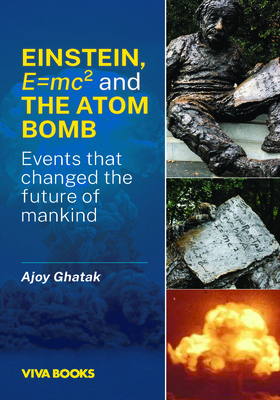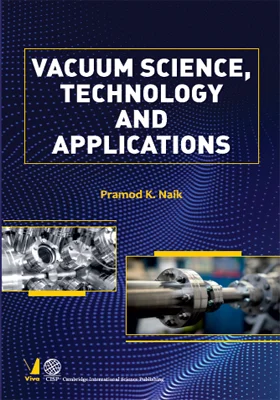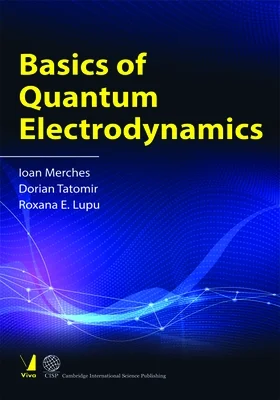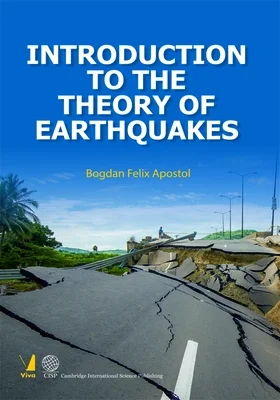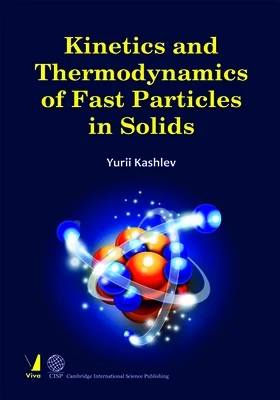Lithium Niobate Crystals
Lithium Niobate Crystals
₹895.50 ₹995.00 Save: ₹99.50 (10%)
Go to cartISBN: 9789386105370
Bind: Hardbound
Year: 2017
Pages: 134
Size: 147 x 229 mm
Publisher: Cambridge International Science Publishing
Published in India by: Viva Books
Exclusive Distributors: Viva Books
Sales Territory: India, Nepal, Pakistan, Bangladesh, Sri Lanka
Description:
Lithium niobate crystals have a number of unique properties. Lithium niobate is at the same time a ferroelectric, piezoelectric, pyroelectric, and has high nonlinearly optical and electro-optical coefficients and photorefractive sensitivity. These properties enable these crystals to be used widely in optical and acoustic devices, and photorefractive sensitivity, enhanced by doping with transitional metals, offers new possibilities of using lithium niobate as a recording holographic medium. These properties are determined by the crystal structure of lithium niobate sensitive to physical and chemical effects. Special attention is given in the book to physicochemical features of technology, disruption of stoichiometry in these crystals and detection of this disruption by physical methods. At the same time, the ideas and methods proposed in the book can be used in technology of other crystals.
Target Audience:
Students, Academicians & Researchers in the area of applied physics.
Contents:
Introduction
Chapter 1: Physico-Chemical Properties of the Lithium Niobate Melt • Temperature dependence of melt viscosity • Surface tension • Effect of magnesium oxide on the lithium niobate melt • Electrical conductivity • Congruently melting composition and the distribution coefficient of Li2O
Chapter 2: Melt Flows in the Crucible under the Conditions of Induction Heating and Growth of Lithium Niobate Crystals by the Czochralski Method • Dimensionless quantities describing melt convection • Inversion of the form of the crystallization surface • Temperature fluctuations in the melt
Chapter 3: Anisotropy of the Growth of Lithium Niobate Crystals
Chapter 4: Effect of Growth Parameters on Crystallization of Lithium Niobate
Chapter 5: Effect of Impurities on Crystallization of Lithium Niobate
Chapter 6: Inclusions of hydroxyl groups in lithium niobate crystals
Chapter 7: Difference of electrical potentials between the crystal and the melt
Chapter 8: Residual thermal stresses in crystals • Thermal stresses formed during growth • Thermal stresses formed in cooling
Chapter 9: Determination of the chemical composition of the LN crystal • Determination of the Li/Nb ratio from Curie Temperature TC • Determination of the Li/Nb ratio from the phase synchronism temperature Tm • Determination of the composition of a crystal from the speed of propagation of a surface of acoustic wave (SAW)
Chapter 10: Formation and Breakdown of Lithium Triniobate LiNb3O8 in the Volume and on the Surface of Lithium Niobate Crystals
Chapter 11: Macromorphology of LN Crystals Grown by the Czochralski Method
Chapter 12: Micromorphology of Crystal Surfaces
Chapter 13: Electronic Exoemission of Lithium Niobate Pyroelectric
Chapter 14: Formation of the Polar State of Crystals
Chapter 15: Determination of the Direction of Crystallographic Axis
Chapter 16: Optical Methods of Examining Crystal Quality • Determination of birefringence in crystals of the basis of the conoscopic pattern • Characterisation of crystals using an interferometer • Optical examination of crystals plates for surface-acoustic waves
Chapter 17: Optical Properties of Reduced Lithium Niobate
Chapter 18: Structural Defects in Lithium Niobate Crystals • Schottky and Frenkel defects • Defects formed when stoichiometry is disrupted • Defects formed in reduction of lithium niobate
Chapter 19: Disruption of Stoichiometry in Lithium Niobate Crystals • Composition of LN crystals • Defective structure of Nb2O5 • Disruption of stoichiometry in lithium niobate crystals • Calculating the x-ray density of lithium niobate • The Abrahams model
Chapter 20: Effect of Isomorphous Impurities on the Stoichiometry of Lithium Niobate • Dependence of crystal density on chemical composition • Dependence of the speed of surface acoustic waves on the chemical composition of the crystal • Dependence of crystal composition on the composition of the melt from which the crystal is grown
Chapter 21: Growth and Characterisation of Lithium Niobate Crystals Doped with Magnesium
Chapter 22: Doping Lithium Niobate Crystals with Titanium Oxide
Chapter 23: Physico-Chemical Properties of Niobium Pentoxide
Chapter 24: Growth of Lithium Niobate Crystals by the Czochralski Method • Preparatory operations for crystal growth • Selection of crucible material • Thermal screening of the crucible with the melt • Control of diameter • Temperature gradients • Crystal growth rate • Rotation speed
Chapter 25: Growth of Stoichiometric LN Crystals from a Crucible with Continuous Feed
Chapter 26: Polarization of Lithium Niobate Crystals
Chapter 27: Formation of a Regular Domain Structure in Lithium Niobate crystals
Chapter 28: Determination of the Suitability of Crystals for Producing Devices based on them • Control of the process of production of lithium niobate crystals for TV filters on surface acoustic waves • Requirements on LN crystal sheets for TB field tests • Post growth control of crystal boules
Chapter 29: A Method of Reducing Deformation of the Crucible during Crystal Growth by the Czochralski Method
Conclusions
References
Index
About the Author:
Prof. Yuri Sergeevich Kuz'minov is a Corresponding Member of the Engineering Academy of Sciences of the Russian Federation, Principal Research Associate of the General Physics Institute of the Russian Academy of Sciences, a specialist in the field of nonlinear optical crystals for laser radiation control. He has published more than 150 publications in Russian and foreign journals and three monographs, including Ferroelectric Thin-Film Wave guides in Integrated Optics and Optoelectronics (together with A M Prokhorov and O A Khachaturyan), published in 1996 by Cambridge International Science Publishing.

